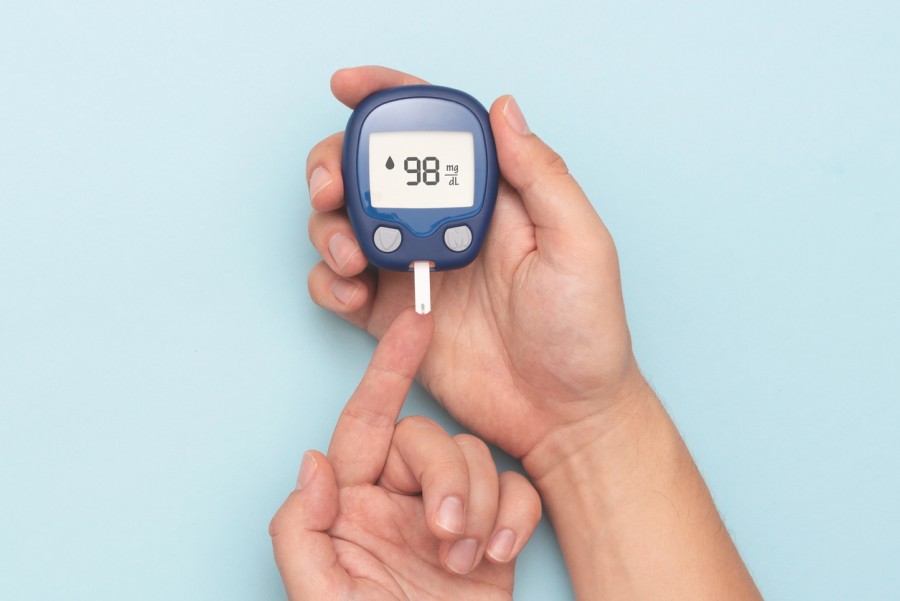Free shipping for orders over 39.00€
What Should I Eat at Night to Have Low Blood Sugar in the Morning?

Many people, whether diagnosed with diabetes or simply watching their blood sugar levels proactively, wonder what they should eat at night to wake up with normal blood glucose levels. The truth is that your evening meal plays a significant role, as it largely determines how your body will respond during the night.
Why Does Blood Sugar Rise in the Morning?
Our body naturally produces hormones such as cortisol and growth hormone early in the morning, which can increase blood sugar. This is known as the dawn phenomenon. In people with diabetes, insulin may not be sufficient to offset this rise.
Another occurrence is the Somogyi effect, where blood sugar drops too low during the night and the body reacts by sharply increasing it.
-
Dawn Phenomenon: Between approximately 3:00 and 8:00 a.m., blood sugar naturally rises to help wake you up. In people with diabetes, insulin response may not be adequate to counter this spike.
-
Somogyi Effect: If blood sugar falls too low at night, the body responds by releasing hormones that raise it, leading to morning hyperglycemia.
What You Can Do
A light snack before bedtime may help stabilize blood sugar levels during the night, reducing the risk of both hypoglycemia and morning hyperglycemia.
The Ideal Dinner or Snack Should Include:
-
High-quality protein
-
Healthy fats (e.g., from nuts or seeds)
-
Limited carbohydrates
-
Dietary fiber
Foods with this composition can help prevent nighttime blood sugar spikes and ensure lower morning glucose levels.
Suggested Bedtime Snacks:
-
A handful of nuts – Almonds, walnuts, or pistachios provide healthy fats, fiber, and protein.
-
A boiled egg with whole-grain crackers – Combines protein and fiber for slow energy release.
-
Low-fat cheese with whole grain crackers – Ideal for protein and complex carbohydrates.
-
Carrots, cucumbers, or cherry tomatoes – Very low in carbs and rich in antioxidants.
-
Celery sticks with hummus – A source of fiber and protein with few calories.
-
Air-popped popcorn – Low in fat and high in fiber, as long as you skip the butter.
-
Roasted chickpeas – A good source of plant-based protein and fiber.
-
Apple with peanut butter – Balances glucose and satiety with natural sugars and healthy fats.
-
Unsweetened yogurt – A good source of calcium and protein without spiking blood sugar.
-
A handful of seeds – Sunflower, pumpkin, or sesame seeds offer healthy fats and protein.
Additional Tips:
-
Don’t eat right before bed. Try to eat at least 2 hours earlier.
-
Take a short walk after dinner. Even 10 minutes can help lower blood sugar.
-
Don’t skip dinner. Nighttime fasting can lead to hypoglycemia and rebound hyperglycemia in the morning.
-
Get enough sleep. Lack of sleep affects appetite hormones, increasing hunger and the need for glucose.
Conclusion
A well-chosen evening meal can make a big difference in your morning blood sugar levels. Choose foods with a low glycemic index, adequate protein, and healthy fats. If you have diabetes or prediabetes, consult your doctor or dietitian for a personalized plan.






